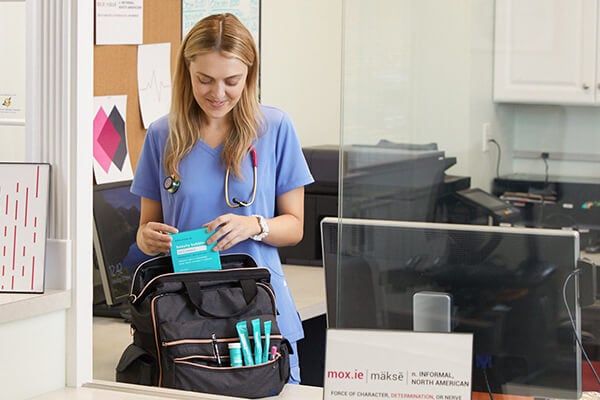Written by Anne Llewellyn, MS, BHSA, RN, CCM, CRRN, FCM
Nursing today takes skills, perseverance, and organization. In this article, I want to share ten tips to help you be organized.
Regardless of your role, being organized allows you to manage your time effectively and know how to allocate hours in your day to prepare for, conduct, and follow up on events and activities that you are responsible for as part of your job.
Research shows that nurses with excellent organizational skills are more productive, make better overall decisions, and handle their workload better.
1. Get to work at least 30 minutes early. Coming in early allows you to learn about your patients, prepare for report and get an idea of what you are walking into.
2. Learn to prioritize. If you are a bedside nurse, talk to the nurse you are relieving and see how the patients are doing. Gaining insight from the nurse going off shift can help you prioritize which patients you should put at the top of your list.
3. Make Lists. To prioritize your day, you need to know which tasks need to be performed first. If you are an experienced nurse, you might feel comfortable with this step – for newer nurses, making a list will help you remember key things you need to do first. Lists also help you from forgetting things – especially on a hectic unit.
4. Research before calling a provider. Coming in early to review your patients’ charts will allow you to know more about your patients and their needs. Stop in and talk to each patient to see how they are doing. Ask if they need anything. This information will allow you to review the chart to see if there are orders to meet their requests. If not, take some time to write a few notes in anticipation of calling the hospitalist or the specialist. Having information on your patients will allow you to answer questions the doctor needs to know before giving you an order. Be prepared and have information like the patient's blood pressure, pulse, temperature, pain level, and other details you found during your assessment. Remember that you are a professional and need to speak to other healthcare team members. Doing your homework before you call a provider will empower you. Remember, you are an advocate for your patient – having the facts will allow you to talk to other team members as colleagues. In addition, knowing your patient better will allow you to set realistic expectations with the patient and their family.
5. Gather the tools you need to do your job. Gather your supplies (including comfortable medical scrubs) and prepare for your day. Having the tools you need will save you time, make you more efficient, and keep you organized.
6. Check for new orders on your patients, so you are on top of things. If you can be in the room when the doctors make rounds, this is an excellent time to ask questions, better understand the care plan and reinforce the strategy to the patient/family.
7. Document your work as you do it. Documenting your work will keep you focused and make sure you are taking credit for the work you are doing. With so many things going on, it’s easy to get distracted. By documenting as things happen, you will keep up to date. If you can’t document your work right away, make notes in your notebook to remember when you have a few minutes to chart.
8. Ask for help and give help to your colleagues. Working together will help you stay organized and will help you get through your day. If family members are present, include them. They will get an idea of what you do as a nurse and realize how hard you work. Watching you do your work gives them the confidence they need to take over once their loved one is discharged.
9. Make sure you take your breaks. Drink fluids throughout the day, make sure you have your meal break, and stay focused on your work.
10. Finally, try to relax – You got this!
I hope these tips help you. You will get your routine down as you are more familiar with your environment, the staff, and your assigned patients.
I’ve also given you some resources that you can review. Look at them and see if they work for you!
Helpful Resources:
1. Free Patient Care Organization Sheets: https://healthandwillness.org/nursing-optin
2. Nursing Workload and Patient Safety—A Human Factors Engineering Perspective https://www.ncbi.nlm.nih.gov/books/NBK2657
3. 6 steps to be better organized https://www.gebauer.com/blog/ways-nurses-can-save-time
About the Author
Anne Llewellyn, MS, BHSA, RN, CCM, CRRN has been a nurse for over 40 years in critical care, case management, and patient/health advocacy. To learn more, visit her website – Nurse Advocate at https://nursesadvocates.com





